Written by: Mahnoor Fatima
Posted on: February 15, 2021 |  | 中文
| 中文
Quaid-e-Azam & Miss Fatima Jinnah arriving in December 1946 at Gul-e-Rana, the residence of Liaquat Ali Khan and Ra
Among the many women who struggled for independence alongside their male counterparts, Begum Ra’ana Liaquat Ali Khan is ranked as one of the foremost women who led the freedom struggle. Known as ‘A Dynamo in Silk’ and ‘Mader-e-Pakistan’ (The Mother of Pakistan), Begum Ra’ana worked tirelessly to ensure that women take part and contribute to the Muslim cause, in the years leading up to Independence and long after the establishment of Pakistan. It is very difficult to summarize the life and accomplishments of Begum Ra’ana, but the sheer breadth of it serves as an inspiration to women who are ambitious and wish to serve their country.
Begum Ra’ana was born Irene Margaret Ruth Pant in Almora, Uttarakhand in British India in 1905. The Pants were an affluent family, albeit ostracized from their upper-caste Hindu Brahmin community because Begum Ra’ana’s grandfather converted to Christianity. It was said that even as a child, she exhibited compassion and understood the importance of charity work; she would often accompany her mother to visit and distribute packages to the needy. Growing up, she displayed ambition and intellectual curiosity, traits for which she became famous in the later years of her life. She was one of the few Indian women of her time who not only completed a Bachelor’s degree but also a Master’s degree in Economics, despite the discrimination she faced by her classmates because she was a woman.
Her care for the wellbeing of her people led her to sympathize with the freedom movement, and she protested against the Simon Commission which recommended constitutional reforms without Indian representation. At the same time, relations between the Hindus and Muslims were falling apart, and the Muslim League emerged as the voice of the majority of Muslims during the twilight of British colonial rule. Nawabzada Liaquat Ali Khan had become a prominent member of the League, not just as Jinnah’s protégée, but a capable speaker in his own right. Liaquat Ali Khan’s charisma and commitment to the freedom movement attracted Irene, who first saw Khan deliver a fiery speech at Lucknow University in 1931, where she was a student.
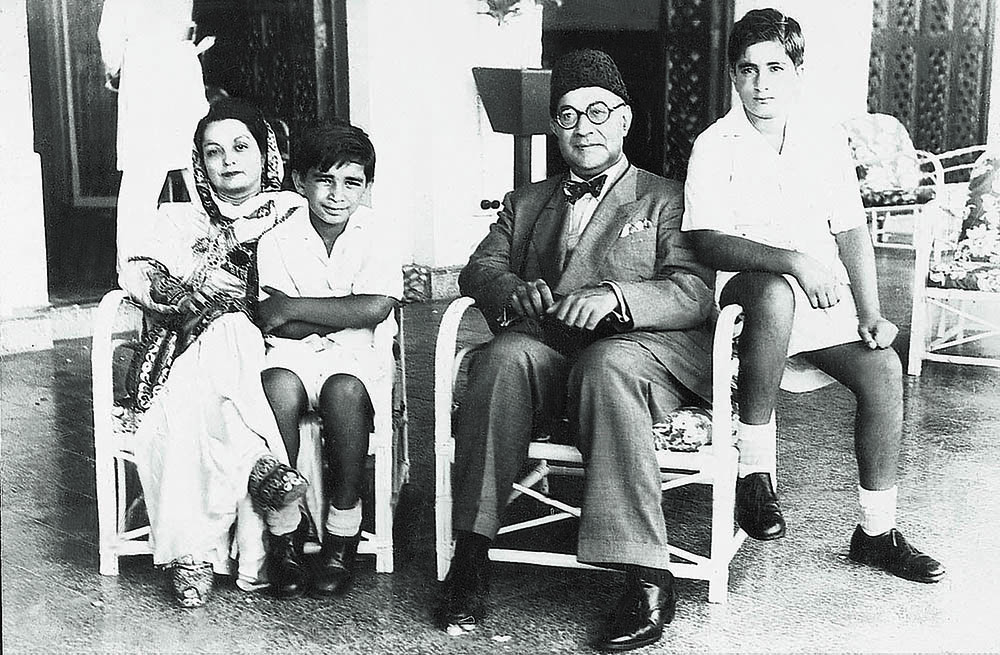
Nawabzada Liaquat Ali Khan with Begum Ra'ana Liaquat and their two sons Akbar (left) and Ashraf (right)
They fell in love later when she taught at Indraprastha College, even though Khan was married with a son and ten years her senior. Their wedding took place in April 1933 and she changed her name to ‘Gul-e-Ra’ana’ (or ‘Ra’ana’ for short) when she converted to Islam. Begum Ra’ana was respected and admired not only because she married for love, but also because she displayed a quick wit and charm that subverted the traditional notions of Muslim women at the time. Historians believe that her biggest contribution to the Muslim League was convincing Jinnah to return as its leader in 1937. Jinnah remained fond of Begum Ra’ana, and would spend many evenings at the Khan’s home in Dehli and Karachi.
Circumstances changed significantly as 1947 approached, and the efforts of the Khans and the Muslim League to secure a separate homeland for Muslims came to fruition. The Khans left everything for a home in the newly established country of Pakistan, selling their properties in India and seeking no compensation for them. At the time, Begum Ra’ana did not realize that she would never be able to return home to her family again, nor did anyone anticipate the carnage and bloodshed that was to follow this historic decision.
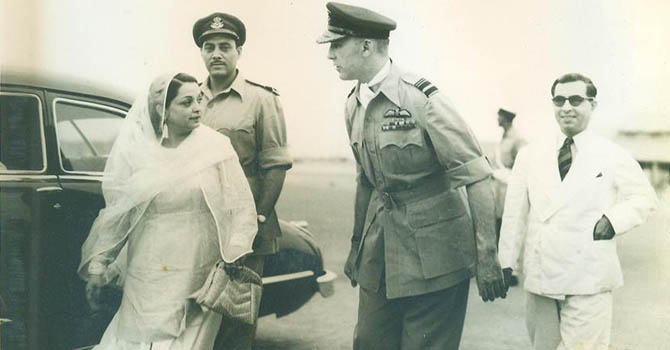
(L to R) Begum Ra’ana Liaquat Ali Khan, Air Marshal Sir Richard Llewellyn Roger Atcherley, Air Chief Marshall of the Pakistan Air Force in 1947 and the Wali of Swat in 1947
Begum Ra’ana did not restrict herself to the role of a homemaker but became an active member of the government as First Lady of Pakistan. She joined her husband’s cabinet as a minister for minorities and women’s affairs. As her husband rose through the ranks of the Muslim League to become the first Prime Minister of the new country, Begum Ra’ana stood beside him, experienced and well-equipped to organize social works. In fact, as early as 1942, Jinnah instructed Begum Ra’ana, “Be prepared to train women. Islam does not want women to be shut up and never see fresh air.”
During the violence of Partition, she created widow welfare homes, shelters for abducted women and a lost and found bureau. Women were sent to government offices to retrieve supplies and make lists, so that incoming refugees could have their needs met. Begum Ra’ana would personally oversee the relief efforts and visit the relief camps to provide aid, at the cost of neglecting her children. Those who worked with her remember her fondly as a pillar of strength, who could understand and sympathize with people. She continued to work on welfare and social projects despite the backlash of religious clerics accusing her of leading women astray, and her husband publicly supported her endeavors.
On that fateful day of October 16, 1951, Liaquat Ali Khan was assassinated during a speech in Rawalpindi, and Begum Ra’ana was left to raise her children alone. It had only been four years since the establishment of a new country, and three since the death of Quaid-e-Azam. As the country fell into political turmoil, Begum Ra’ana did not lose sight of her responsibilities despite reeling from the greatest tragedy of her life.
In order to tackle the rampant poverty and unemployment in the new country, Begum Rana devoted herself to a life of philanthropy and diplomacy. She became the governor of Sindh and the first Chancellor of Karachi University and Sindh University, under Zulfiqar Ali Bhutto’s government in 1973. Among her many accomplishments, she helped form the Pakistan Nurses’ Foundation, Pakistan Women’s National Guard, Pakistan Women Naval Reserve as well as the All Pakistan Women Association more familiarly known by its acronym APWA. She served as Pakistan’s ambassador in the Netherlands, Italy and Tunisia and at the International Labour Organization (ILO).
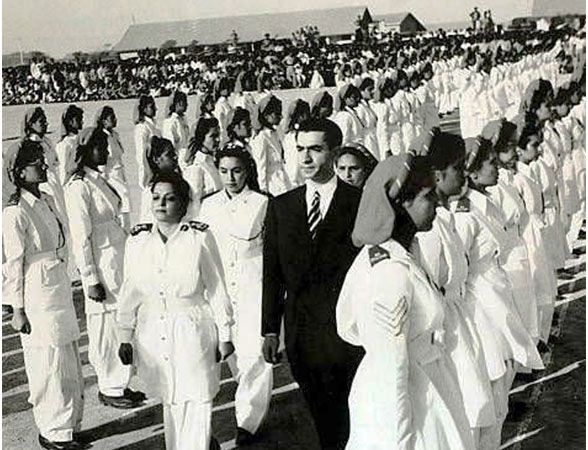
Begum Ra'ana Liaquat Ali Khan leading the Women’s National Guard in honor of the Shah of Iran’s first visit to Pakistan in May 1950
Although Begum Ra’ana could not serve in politics after the 1977 coup of military dictator Zia-ul-Haq, she protested the regime’s version of “Islamization” of laws which made women’s legal status inferior to that of men in many aspects, something she believed the Quaid was strongly against. While life in politics was no longer possible, she remained heavily focused on the social and economic welfare of women for the remainder of her life, even winning the United Nations Human Rights award for her services. She died in 1990, and was buried next to her husband in the Quaid-e-Azam mausoleum of Karachi.
Just as Liaquat Ali Khan’s efforts were integral to the formation of the new country, so was his wife’s contributions to the social welfare of its citizens. Begum Ra’ana was a witness to history, both in the creation of Pakistan and the changing post-colonial, post-Cold War world order. Throughout her life, she held her own and never compromised on her beliefs or her desire to serve the less fortunate. Her accomplishments and passion to serve people is an inspiration for the women who continue to work for the betterment of the nation.
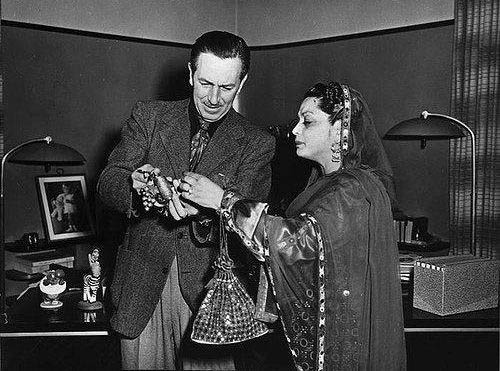
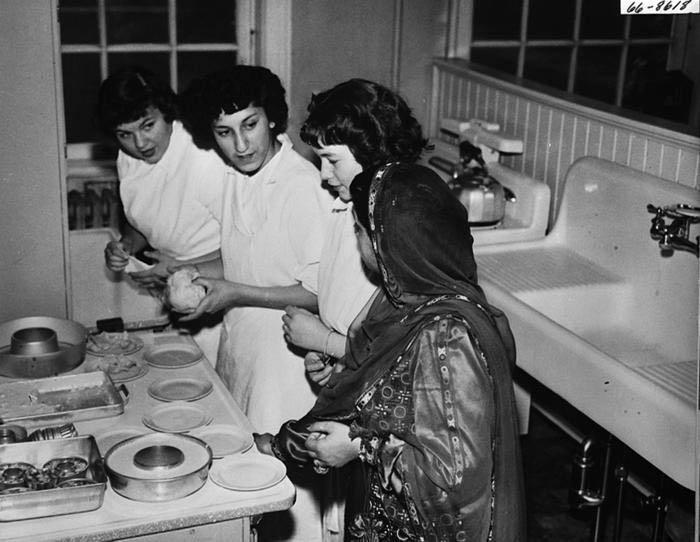
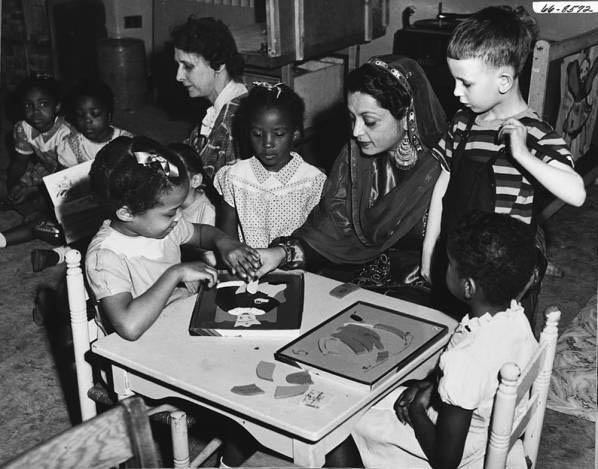
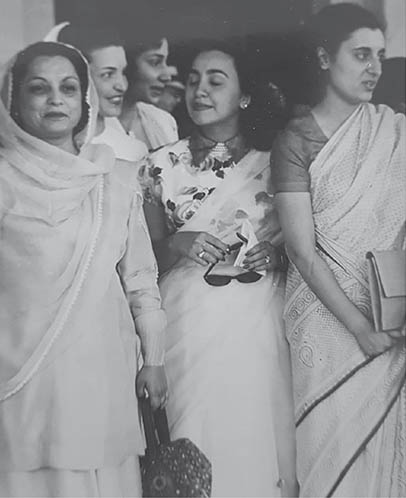
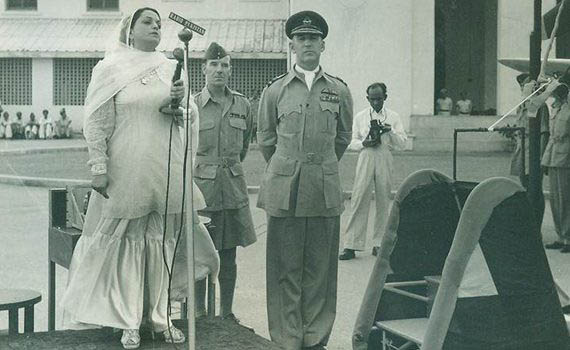
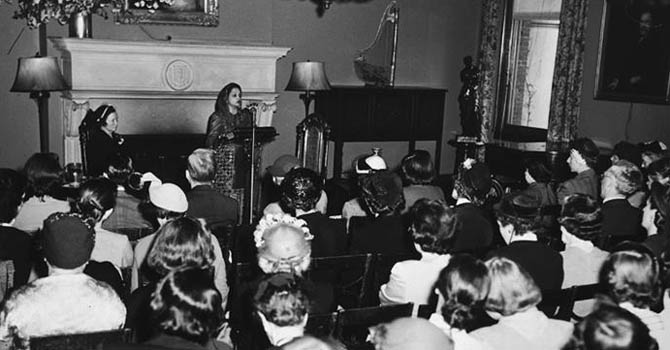
You may also like: